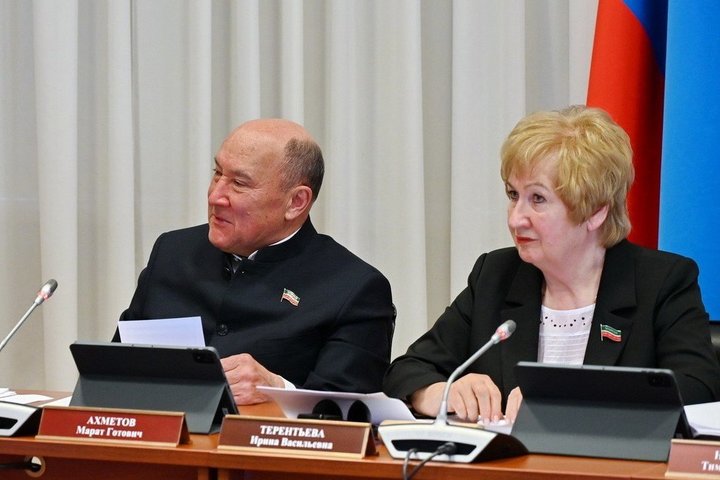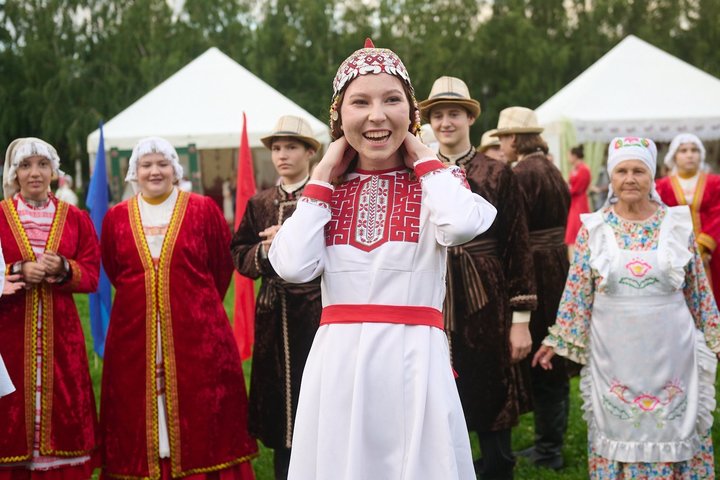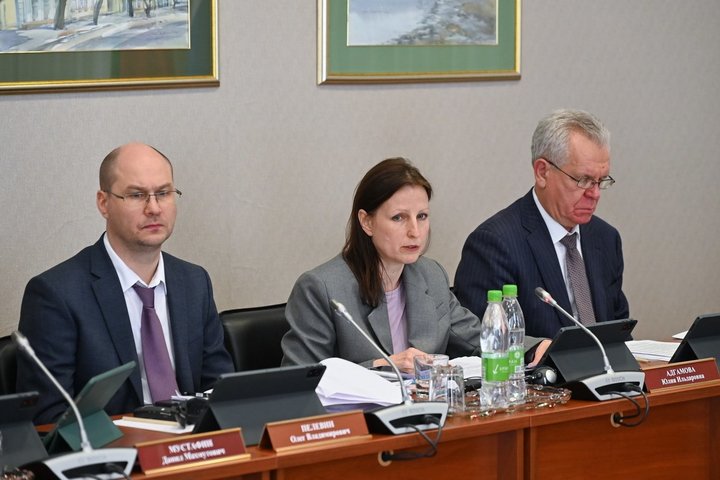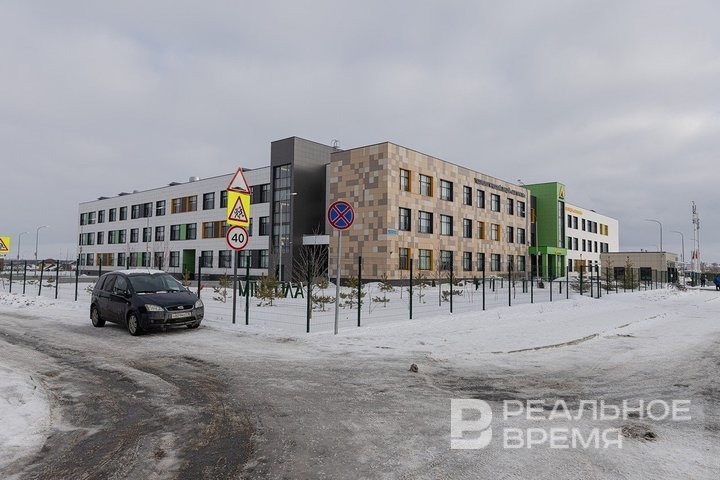Marat Akhmetov: ‘When was the last time you ordered a textbook on the Chuvash language?’
The State Council of the Republic of Tatarstan reported on the results of 2024 in education and culture

The issues of teacher shortages and increased workload on teaching staff were discussed at a joint meeting of the State Council Committee on Education, Culture, Science and National Affairs and the expert council under it. The deputies wanted to know where 75% of graduates of pedagogical universities go. They probably just don’t want to work for low wages.
Is it possible to buy “The History of Our Region”?
The main part of the meeting was devoted to reports on the results of the Cabinet of Ministers of the Republic of Tatarstan for 2024. According to First Deputy Minister of Education and Science of the Republic Andrey Pominov, there are currently 1,935 preschool educational institutions (194,000 children) and 1,402 general education organizations (510,000 children) operating in Tatarstan. At the same time, last year, seven new kindergartens (1,560 places), as well as eight schools and two additional buildings (almost 9,500 students) were built in the republic. In addition, last year, 95 food blocks were renovated for a billion rubles.
In 2024, the Ministry of Education of the Russian Federation sent 26 new-generation textbooks on the Tatar language and literature with a positive expert review.

“We have not ordered textbooks on Mordvin, Chuvash for a long time,” noted the Deputy Chairman of the State Council of the Republic of Tatarstan Marat Akhmetov. “When was the last time you ordered a textbook on the Chuvash language?”
“I'm not ready to answer,” Pominov said and promised to prepare statistics: how many textbooks have been prepared and how many there are applications for.
“These figures are clearly different,” Akhmetov hinted.
In addition, Tatarstan has become one of the 32 subjects of the country where they will develop a textbook on the course History of Our Region for years 5-7 — it will be introduced in 2025. Deputy Rima Mukhamedshina asked whether it would be possible to buy it in a store, since she did not have such a manual as a child, Pominov promised to get a copy especially for the people's representative.
There are more than 32,000 school teachers working in Tatarstan. At the same time, at the beginning of the school year, the republic was short about 2 thousand people, as well as more than a thousand educators. The workload is redistributed to those who remain. As Pominov pointed out, teachers of mathematics and Russian language often work one and a half shifts. Another solution is to attract 680 students from pedagogical universities and colleges to the school.
“But we do not have a situation where the subject is not taught because there is no teacher,” Pominov noted.

The Republic needs mathematicians, physicists, and Russian language experts
Deputy Niyaz Gafiatullin clarified whether there are plans to solve this problem with the help of online education? So far, the ministry has not come to this conclusion. Is there a general strategy for solving the problem?
“I cannot fully voice the strategy to you. The first point is that we are very much counting on the development of pedagogical classes,” Pominov answered.
“We need to motivate and attract people to the teaching profession from the school bench, and not select them from those who study at universities.”
Another area is to optimize recruitment to universities.
“We need mathematicians, physicists, Russian language experts, we are working with the university in this area,” Pominov answered.
And, of course, we need to work with graduates. Every year, 4,000 teachers graduate. The demand is 2,000. A little more than a thousand come to work.
In addition, Pominov said that now in Tatarstan there is a network of specialized classes with a psychological and pedagogical focus for 6,500 children who are potential future teachers. There is a project for scholarship support for teachers in rural areas. There are additional payments for class teachers and young specialists.
“The reality is that a young person is offered 20-22,000 rubles in salary, plus he must work for five years under targeted training,” noted Vice President of the Academy of Sciences of the Republic of Tatarstan Aynur Timerkhanov. “Of course, everyone will decide how to avoid their fate.”
By the way, as Pominov noted, at the visiting meeting of the State Duma Committee on Education in Ufa, the idea of returning to the Soviet two-tier system of vocational education was voiced: “It is very raw and needs to be improved.”

“We need to start with salaries. Then all the talk”
First Deputy Minister of Culture of the Republic Yulia Adgamova spoke about the results of work in the industry over five years, since her report discussed the implementation of the national project Culture.
Last year, Adgamova said, 38,611 million rubles were spent on culture. Of these, 1,174 million were federal funds (in 2019 — 429 million).
Extra-budgetary funds have tripled, and the number of cultural workers has increased by 10%, the average wage level — by 88%.
The same Gafiatullin noted that inflation ate up a significant part of these figures. They say that such statistics are usually cited when they want to hide something.
“There is nothing to hide,” answered Adgamova, pointing out that all the figures are in the report.
At the same time, objectively, people began to attend events more often (28 million versus 103 million). In particular, last year another 321 thousand young residents issued themselves a Pushkin Card. At the same time, Adgamova reported, in 2025, 13 cultural facilities will be modernized — this is the federal project Family Values and Cultural Infrastructure (Culture for the Family).
“A request — more effectively load the sites, especially libraries,” Akhmetov noted. “Beautiful halls, round tables, we see this, but we rarely get to the process itself.”
“We need to start with salaries. Then talk,” summed up Director of the centre Sozvezdie-Yoldyzlyk Dmitry Tumanov. He told about the graduate of GITIS Evelina Srurtdinova who works in Kazan and Aksubaevo at the same time. “No one compensates her for petrol!”
“It is very dark in the regions in winter. The guys who teach there, they should have the opportunity to come to Kazan, immerse themselves in the atmosphere. They should be mobile, they need financial help,” having told about this, Tumanov went beyond the discussion and noted, looking at Director of the Kamal Theater Ilgiz Zayniyev, “I was in your theatre yesterday, in the small hall. I left the small stage for 15 minutes. There are questions about the fire department. Everyone is cursing each other ... I suggest that a year after the delivery of cultural facilities, the school, there should be a commission!”
“The average age of the members of our union is 70 years old,” added head of the Writers' Union Rkail Zaydulla. “Andrei Pominov did not answer Marat Akhmetov’s questions in essence. The main problem is the crisis of national education. No education — and soon there will be no writers.”